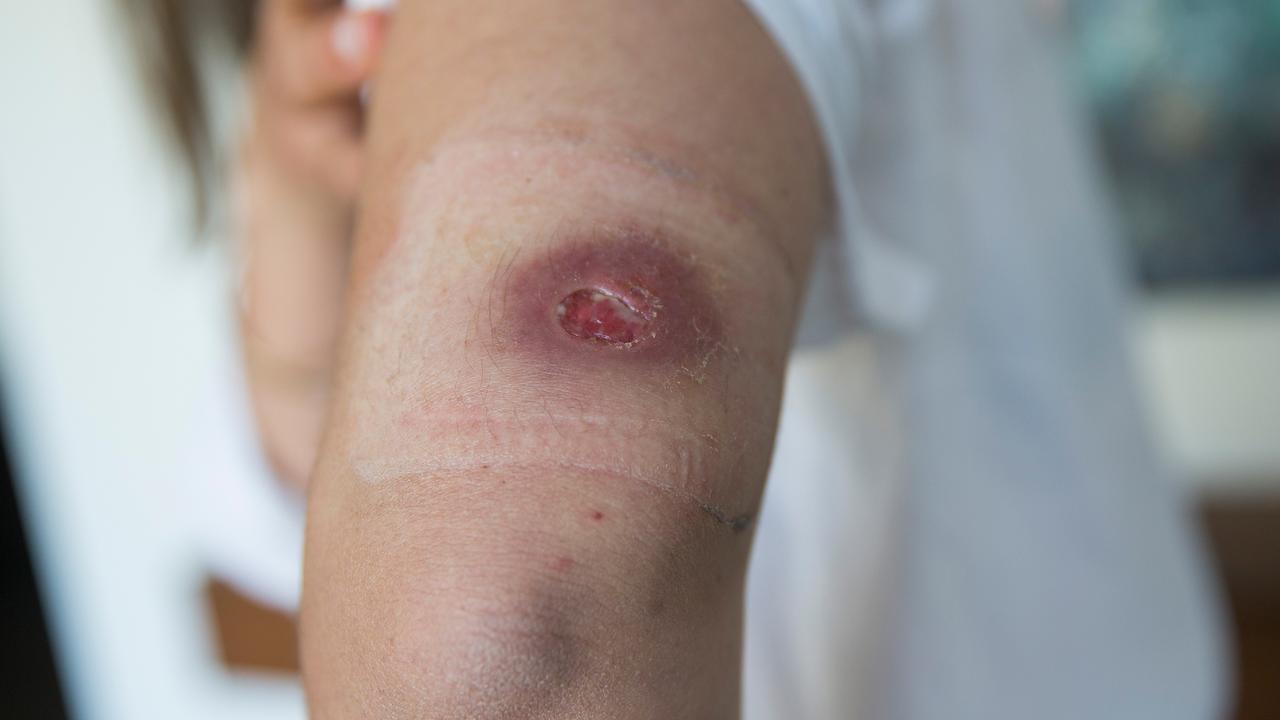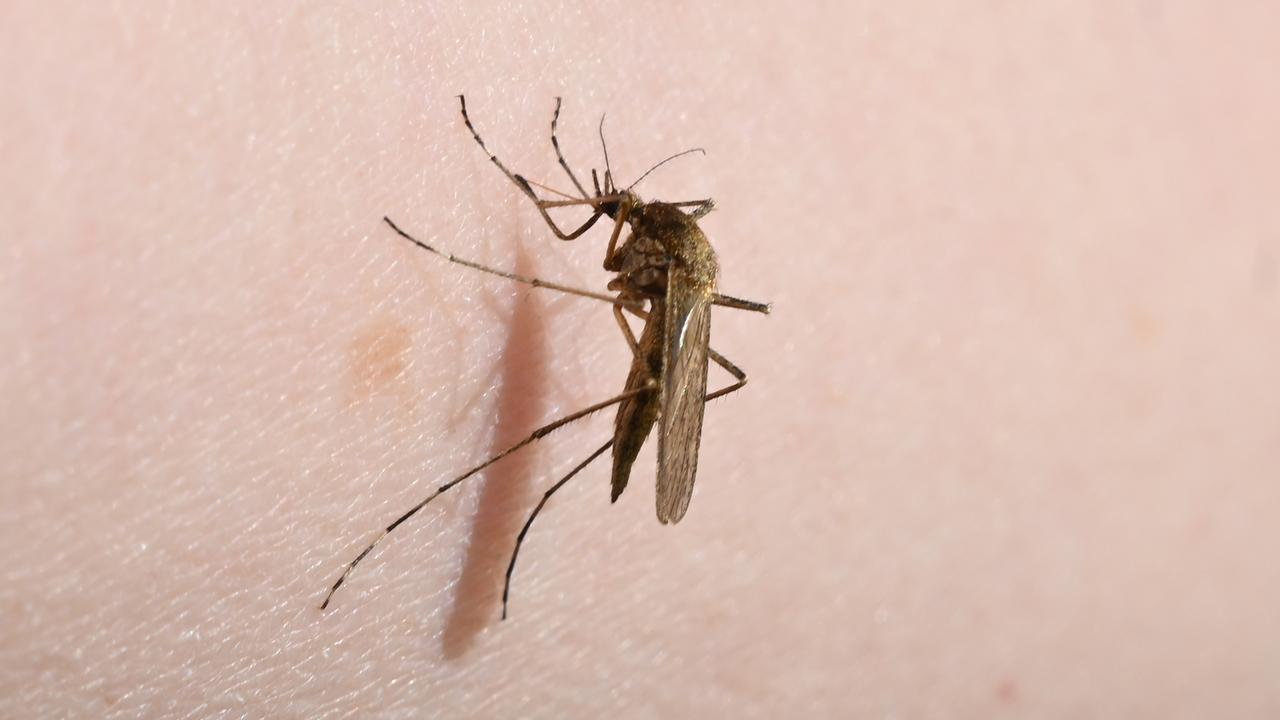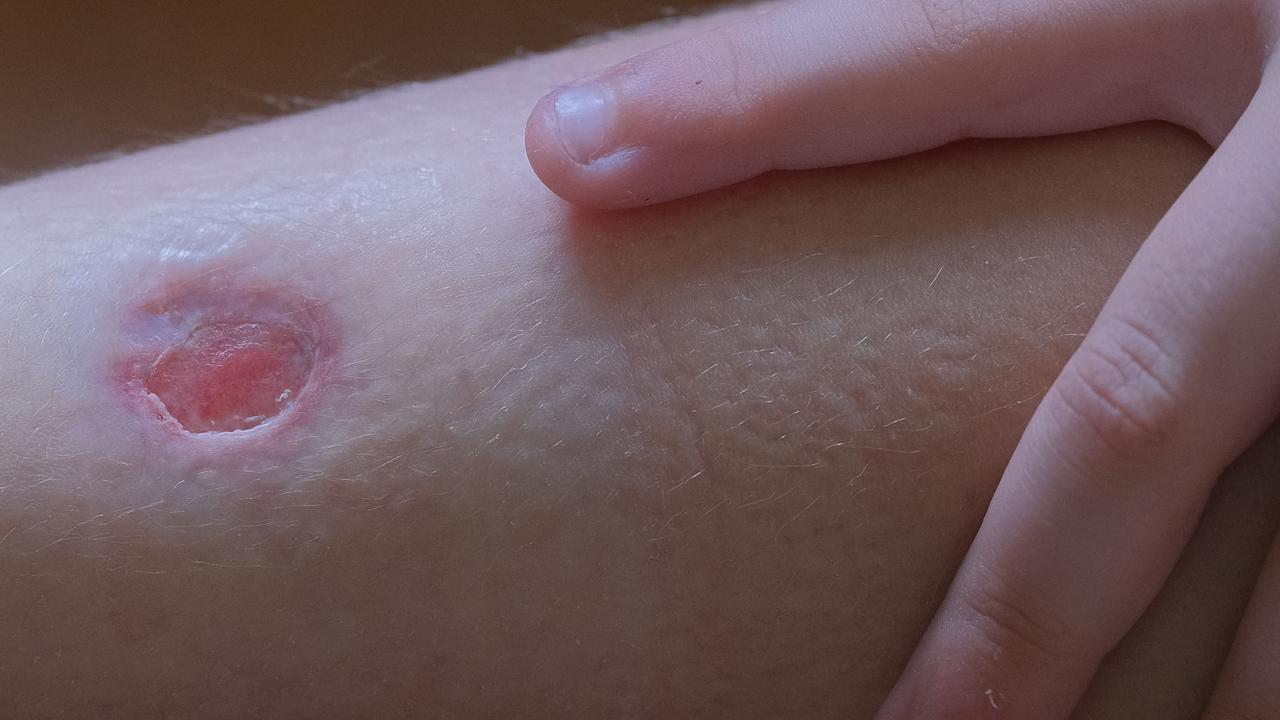Northwest Melbourne suburbs warned about flesh-eating Buruli ulcer virus as cases rise to ‘significant numbers’
A flesh-eating bacteria is spreading through Melbourne, sparking warnings from health authorities for residents to remain vigilant to signs of infection.
Residents in Melbourne’s northwest have been warned to beware of the signs of a bacterial skin virus, as cases increase across multiple suburbs.
Cases of Buruli ulcer virus – also known as Bairnsdale ulcer virus – have increased to “significant numbers” across the Mooney Valley and neighbouring Merri-bek council areas, according to the Western Health Public Health Unit (WPHU).

The WPHU has warned residents in the Mooney Valley suburbs of Essendon, Moonee Ponds and Strathmore, and Merri-bek suburbs of Coburg, Brunswick West and Pascoe Vale South to be seek medical advice for non-healing skin ulcers and avoid mosquito bites.
The Buruli ulcer virus is an infection of skin and soft tissue caused by the bacterium Mycobacterium ulcerans.
The toxins made by that bacteria destroy skin cells, small blood vessels and the fat under the skin leading to infections, ulcers and skin loss. Damage can be serious and extensive if diagnosis is delayed.
“Most Buruli ulcers are treatable with oral antibiotics,” Moonee Valley Mayor Pierce Tyson said in a statement.
“Early diagnosis is key to a swifter and more full recovery.”

There is increasing evidence from Victorian research that the virus is transmitted to humans from possums via mosquitoes, especially those found in our backyards, according to the WPHU. Reducing your exposure to mosquitoes will reduce the risk of infection.
The virus cannot be shared from person-to-person.
Because the Buruli ulcer usually has a 4-5 month gestation period – but can be as short as one month or as long as nine – many people exposed to the virus in the early months of 2023 will be showing signs of infection now, the WPHU says.
Unlike other ulcers, the Buruli is often painless initially and has no secondary symptoms or signs of infection, like fever.
A Buruli ulcer may start as a lesion, such as a bite, or as a lump under the skin that progressively gets larger over days or weeks. They typically form on areas of the body most commonly exposed to mosquito bites such as the ankle, lower leg, or arms.

While there is no need for alarm, Cllr Tyson said, any residents with non-healing lesions in the northwest Melbourne suburbs listed by the WPHU should visit their doctor for assessment as soon as possible.
“Most Buruli ulcers are treatable with oral antibiotics. Early diagnosis is key to a swifter and more full recovery,” he said.
Cllr Tyson added that it was important to be alert to signs of infection and reduce their risks of mosquito bites in their backyards to avoid infection.
“While the risk is low, we want to ensure all our residents are fully informed on how to keep themselves and their families safe from Buruli ulcer,” Cllr Tyson said.
Residents have been told to reduce mosquito breeding grounds in their backyard by removing stagnant water from pots, drains, gutters and the like, earing long-sleeved and protective clothing, and using personal insect repellents.
Cases of Buruli ulcer in Victoria vary from year to year but have been increasing to 200-340 cases per year since 2017.
The fresh warning comes days after a Coburg grandmother shared her harrowing story of contracting the bacterial infection, saying she feared losing her leg to the painful ulcer that started in her foot.





